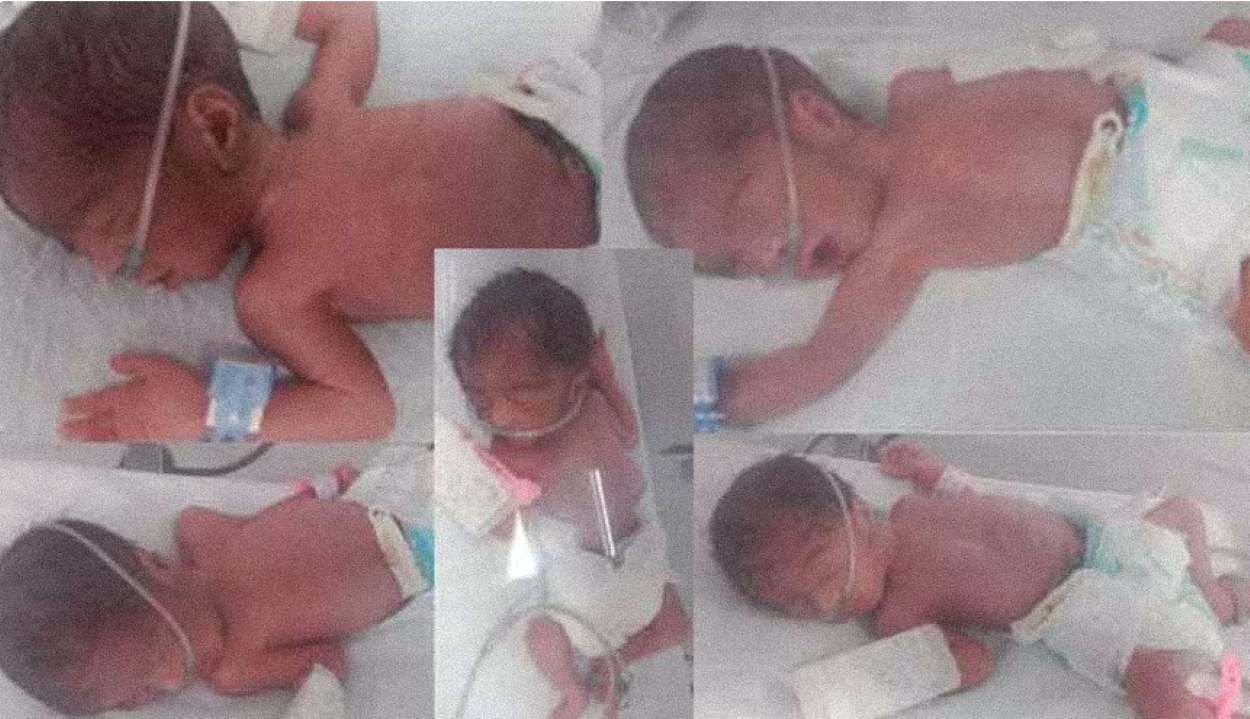A couple from Baldia Town in Karachi, Adnan Sheikh and his wife, recently welcomed quintuplets—three girls and two boys who were born prematurely at 29 weeks via emergency cesarean section in a private hospital.
The underweight newborns encountered breathing difficulties and were placed on oxygen support, with initial tests conducted to monitor their condition. Adnan, who has been married for a year and works as a driver, expressed his joy but also appealed for financial assistance due to the overwhelming medical costs.
On July 22, 2025, the quintuplets were delivered at a private hospital in Karachi. Born at 29 weeks, the infants required immediate oxygen support due to low birth weight and respiratory issues. Medical professionals are closely monitoring their progress, with reports indicating improvement in their condition.
کراچی میں بلدیہ ٹاؤن کے رہائشی کے ہاں بیک وقت پانچ بچوں کی پیدائش ہوئی ہے، نوزائیدہ بچوں کی پیدائش کراچی کے ایک نجی ہسپتال میں ایمرجنسی سی سیکشن کے ذریعے ہوئی۔ ڈاکٹروں کے مطابق بچوں کی پیدائش قبل از وقت ہوئی، جس کی وجہ سے ان کا وزن بہت کم ہے اور پیدائش کے فوراً بعد انہیں سانس… pic.twitter.com/vT5ohGbw36
— Times of Karachi (@TOKCityOfLights) July 22, 2025Adnan Sheikh, speaking to media, shared his mixed emotions: “I am grateful for this blessing, but the financial burden is overwhelming.” As a driver, he finds the costs of caring for five premature infants daunting. He has appealed to the government and charitable individuals for support to cover medical expenses.
Hospital staff confirmed the infants’ stabilisation efforts, including oxygen support and lab tests. This case echoes a similar event in Bahawalpur, where a woman also delivered quintuplets, underscoring the rarity and challenges associated with such births. Community members and organisations are beginning to rally, with calls for donations to assist the family.
Quintuplet births are rare and often involve high-risk pregnancies requiring specialised care. Pakistan’s healthcare system faces strain, particularly for low-income families like Adnan’s, underscoring the need for accessible medical support.






